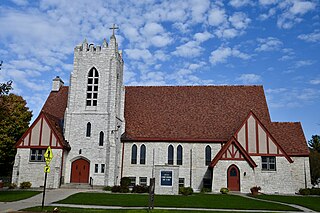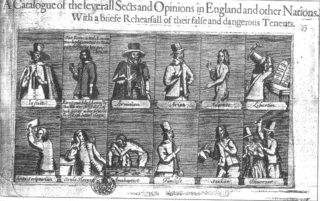Career

His parents intended him for a life in the church, and had him privately educated by 'pious families'; in 1631, he entered Wadham College, Oxford, where he earned two degrees, graduating in 1638. [3] He reacted against his Puritan upbringing by supporting reforms to the Church of England made by Archbishop Laud. Ordained in 1639, he was appointed rector in the Devon village of Rampisham; provided with a private income from his father, he spent his stipend from this position on his parishioners. In May 1641, he was made a Prebendary of Exeter Cathedral. [2]
Unlike most of his family, Francis supported the Royalists when the First English Civil War began in August 1642. He continued using the Book of Common Prayer, until forced to stop by Parliamentary troops; he later denounced it as an "unclean constitution of humanely invented worship". [2]
In 1647, he moved to the parish of Wraxall, Somerset, and a few years later became an associate of Richard Baxter, a cleric known as the 'Puritan saint', and supporter of the Reformation of Manners. In line with its precepts, he tried to impose greater moral discipline on his parishioners, replacing games and other popular pastimes with religious study. He was removed from Wraxall in 1653, and began preaching at Sherborne; in 1657 he was installed in a service reportedly attended by over 2,000 people. [4]
Following the 1660 Restoration, he was restored as prebendary, while Baxter recommended him for a bishopric. However, he was evicted from his living after the 1662 Act of Uniformity; he was arrested for preaching without a license, and spent most of the next nine years in Dorchester gaol. [5]
While in prison, he became a convinced supporter of Saturday Sabbatarianism, and established a Seventh Day Baptist Church. [6] After his release in 1672, he became an itinerant preacher, and was soon sentenced to another eighteen months in Salisbury jail. He moved to London in 1674, where he established several Sabbatarian Baptist congregations. [7] However, he was unsuccessful in his wider ambition of building an international association to train ministers, educate children in Hebrew, and convert Jews. [2]
In February 1683, he was arrested; although he had links to the Presbyterian radical Robert Ferguson, he was not involved in his conspiracies. Committed to court in March, he refused on principle to swear the Oath of allegiance, and was sent to Newgate Prison, where he died of fever on 16 February 1684. Large crowds of sympathisers attended his funeral at the Anabaptists' burial-ground in Aldersgate Street. [2]
A contemporary noted he was 'first a churchman, then a Presbyterian, afterward an Independent, then an Anabaptist, and finally, almost a complete Jew.' [8]












